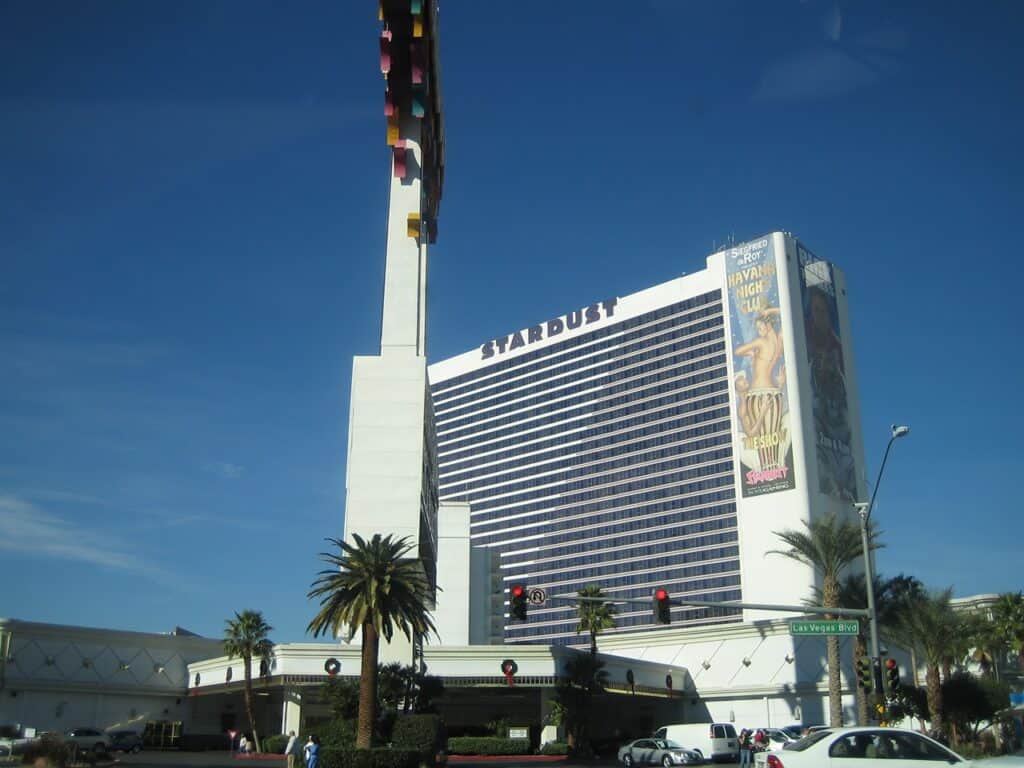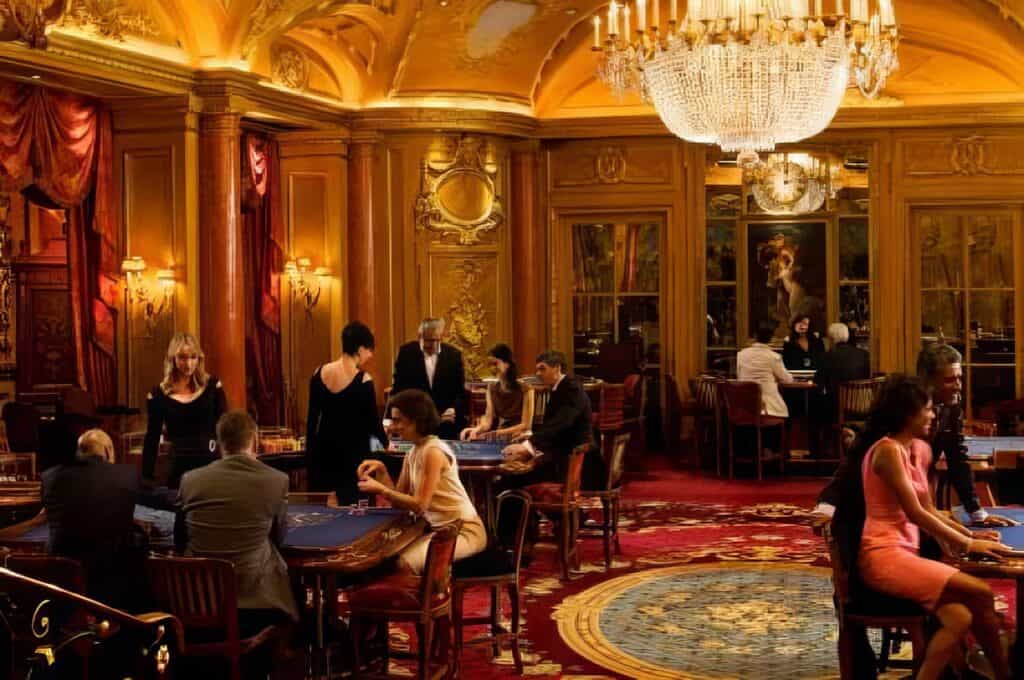You know those glitzy Hollywood depictions of casino heists that just seem so irresistible? There’s a certain charm about the bold audacity of silver-screen legends and real-life risk-takers alike.
From infamous rogues such as Heather Tallchief to suave tech gurus who outwitted security systems worth millions, this blog is set to unveil pulse-pounding stories from the thrilling sphere of casino high jinks.
So strap in for an exhilarating journey through some of history’s most daring acts of gambling grand larceny.
Key Takeaways
Casino heists are real and happen just like in movies. People have stolen millions from big casinos.
There are many ways to pull off a casino heist. Some use tricks, some use tech, and some get an inside job.
Getting caught after a casino heist can lead to long jail time. Casinos have learned from these thefts and made their security much stronger.
Online casinos could be a way to stop physical casino thefts. They use high-tech methods to keep things safe.
Table of Contents
Overview of Casino Heists in Popular Culture
Well, folks, let’s dive headfirst into the thrilling realm of casino heists in pop culture. Isn’t there just something captivating about Hollywood’s fast-paced caper films? We often find ourselves unwittingly cheering on charming rule-breakers like George Clooney and Brad Pitt from “Ocean’s 11.” It gives us a certain thrill to see an ingenious team outsmarting those gleaming fortress-like casinos lining the Las Vegas Strip.
And who can forget the glitz and glamor of card counting shown in movies like “21,” inspired by the true story of the MIT Blackjack Team racking up millions using Bill Kaplan’s strategies?
Television isn’t missing out, either. Series like Netflix’s ultra-popular “Money Heist” have got our minds racing with their detailed planning and masterful execution of epic thefts.
But these stories aren’t content staying within cinema confines; they seem to tap into some people’s adventurous spirits, urging them to bring reel-life plots alive! Our friend Reginald Johnson is a case in point whose attempt at robbing Treasure Island Casino was eerily similar to a movie script! So while we’re casually munching popcorn, reveling in scenes of gripping thefts on screen or book (James Manning bagging those millions at Crown Casino springs to mind), somewhere someone might be taking diligent notes.
Well, who said life doesn’t imitate art?
The Reality Behind the Glamour: Real-Life Casino Heists
Casino heists are not just movie plots. They happen in real life, too. Take Reginald Johnson, for example. He got brave and decided to rob Treasure Island casino not just once but multiple times in 2000! His guts paid off at first with a cool $30,000 plus scoop from the first two attempts.
But his winning streak was cut short when he shot a couple of security guards during his daring acts.
Then there’s James Manning’s story, the man who shook The Crown Casino in 2013 by raking in an eye-popping $33 million playing blackjack! You might think he had crazy luck, but nope, it was all planned out – breached security cameras and card signaling were his game plan; sneaky, right?
And let me tell you about Heather Tallchief’s big job at Circus Circus Casino back in 1993. She drove away unnoticed with around $3 million while her colleagues were caught unaware inside the building! Her risk and courage took her on a cross-country run until she turned herself into cops twelve years later.
In reality, there’s no glamor here – only greed met with some serious action that often ends badly for those involved.
Unforgettable Casino Heists
From the brazen biker bandit at Bellagio to a high-tech heist at Crown Casino Melbourne, get ready for an adrenaline-charged journey through the most audacious casino robberies in history.
Strap in and keep reading because it’s about to get wild!
Bellagio, Las Vegas (2000)

I still have a reel of the Bellagio heist in my mind. It was in 2000, right here in Las Vegas. A bold man named Jose Vigoa and his crew walked into the famous casino and stole $160,000.
The crazy part? Vigoa didn’t even bother to wear a mask! Maybe he thought he could blend with high rollers at the blackjack table or vanish in the crowd at Circus Circus. But his face got caught on an automated teller machine’s camera.
Poor old Vigoa ended up with four life sentences for this stunt and other crimes.
Stardust, Las Vegas (1992)

A crazy thing happened at the Stardust in Las Vegas back in 1992. No one knows how much money got lifted, but it made a lot of heads turn. Back then, it was known as one of the best places to roll dice and have fun.
But that night, some guys turned fun into a big payday for themselves. They slipped away like ghosts in the night, leaving everyone else shocked and empty-handed!
Circus Circus Casino (1993)

In 1993, the Circus Circus Casino in Las Vegas saw a grand theft. Heather Tallchief and Roberto Solis teamed up for this act. They tricked everyone and stole close to $2.5 million! Talk about high-stakes gambling! Tallchief was behind the wheel of a Loomis armored truck full of cash when she took off with Solis.
They vanished with all that money. Can you believe it? But wait till you hear what happened next! Over ten years later, Tallchief gave herself up to the police, but guess what – no sign of Solis or most of that stolen money ever again!
Ritz Casino, London (2004)

In 2004, I heard about a crazy event at the Ritz Casino in London. A group of brave gamblers decided to try their luck with laser scanners and microcomputers. They were not playing child’s play but a complex game of predicting the roulette wheel’s next stop! It sounds like something from a Hollywood movie, right?
Their master plan was called sector targeting. Using this strategy, they bagged quite an impressive sum – £1.3 million all in one go! Their bold plot put the Ritz Casino heist on the map as one of the unforgettable casino robberies that grabbed headlines around the world.
Crown Casino Melbourne Robbery – $33 Million (March 2013)

In March 2013, I learned about a crazy event at the Crown Casino in Melbourne. A group pulled off a bold theft! They got away with $33 million. The team hacked into security cameras and used card signaling to win big.
This sneaky act stands as one of the biggest casino heists ever seen in history. Wow, talk about high-stakes games!
The Art of the Heist: Strategies and Techniques
People pull off casino heists in many ways. Let’s look at some of the best moves seen:
- Reginald Johnson’s move on Treasure Island: He used unknown tricks to steal more than $30,000. No one knows how he did it till today.
- James Manning’s play at The Crown Casino: He tricked the security cameras and gave card signals to win a whopping $33 million!
- The MIT Blackjack Team’s secret: They counted cards and used clever game plans. This smart play won them tens of millions in different casinos all over the globe.
- Heather Tallchief’s Circus Circus Heist: She made off with about $3 million! How, you ask? She drove armored vehicles for Loomis, an important cash-handling company.
- The Ritz Casino job in London: A team of gamers used laser scanners and small computers to aim at certain sectors in roulette.
- Rolando Luda Ramos’ inside job at Soboba Casino: As a surveillance tech, he had access to secure spots and ran off with over $1.5 million from the vault!
- Anthony Michael Carleo’s Bellagio stunt: This son of a Las Vegas judge stole casino chips worth $1.5 million from Bellagio!
The Aftermath: Consequences and Repercussions
When the adrenaline of the heist fades, reality kicks in with legal action hot on its heels, and boy, do those casino security folks get creative in beefing up their measures after a hit!
Legal actions taken
I have seen a lot of stuff in my time. Here is what happened when the law stepped in:
- The cops got Reginald Johnson, who had to say he was guilty of robbery and tried to kill someone.
- James Manning won $33 million from Crown Casino by breaking rules and giving signals during card games. The law did not find it funny.
- Heather Tallchief took $3 million from Circus Circus casino and ran away. She then felt bad and gave herself up to the police.
- Anthony Carleo stole chips from Bellagio worth $1.5 million and ended up spending nine years in prison because of that.
Security measures implemented
Casinos know that big money can lead to big problems. So, they have put in place top-notch security measures to keep the cash safe.
- Closed-Circuit TV (CCTV): Each casino is like a set from Hollywood. Cameras hang from every corner.
- High-Level Computer Security: Casinos have high-tech computer systems. They use encryption software and firewalls to shield their data.
- Special Casino Chips: Many casinos now use ‘smart’ chips with radio-frequency identification tags.
- Armored Cars: For moving large sums of money, armored vehicles get used.
- Security Guards: Armed guards are always on hand in case things go wrong.
- Intricate Cybersecurity Measures: With the rise of online gambling, measures against cybercrime have become a must.
Today’s Casinos: How Safe Are They?
Contrary to the glitzy movie heists, today’s casinos have upped their game with state-of-the-art security measures that would give George Clooney’s ‘Ocean 11’ team a run for their money.
Overview of security measures in modern casinos
Casinos today are like fortresses. They use high-tech methods to keep them safe. One of these ways is using laser scanners and microcomputers. These tools help the casino spot any funny business fast! Some casinos even make their own workers play dress-up.
It’s not for fun, though; it’s to stop bad guys from doing nasty things unnoticed. But don’t worry, they won’t give you all the secrets. That would spoil the game! So next time you walk into a casino, just know that you’re stepping foot into one of the safest places on earth!
The role of online casinos in preventing heists
Online casinos like DuckyLuck are tough nuts to crack. They use things like firewalls and encryption software. They keep your money and your personal info safe from thieves. It’s not easy to steal from these places! Plus, they offer secure ways for players to put in and take out their cash.
So just think about it. If all the games were online, wouldn’t that stop heists at brick-and-mortar casinos? Now you see why online casinos are key in keeping casino heists on the down low!
The Allure and Danger of Casino Heists
In the end, casino heists are thrilling but risky. They draw us in with their daring moves and bold antics. But remember, these acts come with real dangers and heavy penalties. So, let’s stay on the safe side and enjoy these stories from afar!
FAQs About Casino Heists
What is a casino heist?
A casino heist is a crime where people steal money or other valuables from a casino, like what happened at the Stardust Resort, Circus Circus Las Vegas, or Crown Melbourne.
How do thieves break into casinos?
Thieves use different ways to break into casinos. Some use clever tricks and take advantage of slot machines, while others use high-tech tools like malware for cybercrime.
Have there been any famous casino heists in movies?
Yes! The movie Ocean’s 11, starring George Clooney and Brad Pitt, is about a big-time robbery on casinos along the Las Vegas Strip, including Bellagio and MGM Grand Las Vegas.
Are online casinos safe from heists?
Online gambling sites have strong computer security systems such as encryption software and firewalls to protect your personal data from cyberattacks, but they can still be targets for skilled hackers wanting bitcoin or other cryptocurrencies.
What happens when robbers get caught after a Casino theft?
When police catch the criminals, they face charges that may lead them to prison. For example, Roberto Solis, who was involved in an unforgettable robbery at Soboba Band of Luiseño Indians’ Casino, ended up with life imprisonment.
Can you tell me about one of the biggest Casino Heists ever committed?
One huge event was “The Crown Casino Heist,” where high rollers were targeted by thieves who got away using fast getaway cars like Suzuki motorcycles and vans after creating chaos with smoke bombs.



